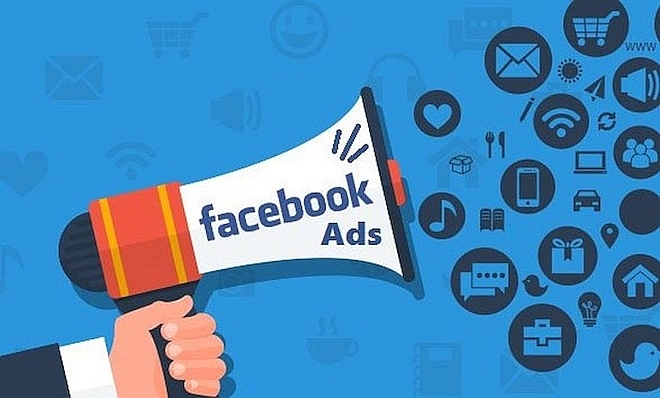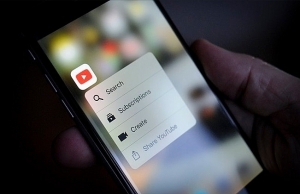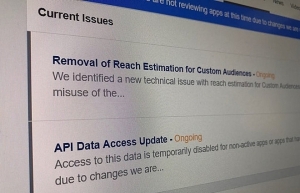New Facebook advertisement policy may have missed the mark
 |
| Facebook's new policy to halt advertisement has come into effect since June 12. Photo: 24h.com.vn |
Facebook’s new policy
On June 12, Facebook’s policy to halt false and fraudulent advertisements came into effect. Accordingly, people can now send complaints after buying goods on the social networks. If the number of complaints about a firm is large enough, Facebook will halt the firm’s advertisements on its platform.
In addition, Facebook will also halt online shopping websites and individuals which sell items of lower-than-advertised quality.
The social network’s move is supposed to earn back users’ trust after a series of data leaks affecting 87 million users in March only, while the latest scandal was Facebook’s sharing user data with mobile manufacturers coming into light.
 YouTube video filter policy reduces earnings of content creators YouTube video filter policy reduces earnings of content creators |
 Thousands of Vietnamese online stores to go bankrupt by Facebook blocking API Thousands of Vietnamese online stores to go bankrupt by Facebook blocking API |
New policy may affect domestic firms
After Facebook officially announced halting advertisements, the Vietnamese business community was in panic because the social network is an effective business tool for many domestic firms. The latest survey of sapo.vn, a domestic sales management website, stated that 80 per cent of over 1,000 retailers surveyed chose Facebook as a trading platform.
| Furthermore, halting advertisements may not be a good solution for Facebook because most of its revenue comes from advertisements. According to statistics of data analytics company Experian, Facebook and Google in 2017 embraced a quarter of the $100-billion global online advertising market. |
Previously, Facebook’s blocking the application programming interface (API) has also had a remarkable effect on a large number of domestic online businesses.
zing.vn quoted Doan Trung Thong, a representative of e-commerce firms from Hanoi, that after Facebook blocked API, all online sellers had to resort to conversation management tools for Messenger to interact with customers on Facebook to increase feedback efficiency, then consolidate all orders from comments and guests’ messages to the fanpage.
The social network’s halting advertisements is similar to YouTube’s video filter policy introduced in late 2017 which limits nonsensical and unhealthy videos to protect users and viewers.
This policy also brought concerns for many Vietnamese YouTubers doing business on the platform because the policy does not distinguish between quality content and “rubbish,” leading to many high-quality videos being yellow-flagged (marked as inappropriate content by YouTube).
This was also the main reason of a gun assault at YouTube’s headquarters near San Franciso on April 3. Accordingly, US media stated that Nasim Aghdam, the 39-year-old woman who shot at the headquarters, got angry after her income from YouTube videos dropped due to the company’s filtering policy.
It seems like technology firms’ common ground in resolving their scandals is to halt some related features instead of addressing the problem as a whole, resulting in patches that do not solve the core issue.
In addition, Facebook’s new feature may not distinguish between real and fake advertisements, which means it might affect firms doing genuine business utilising Facebook as a trading platform.
What the stars mean:
★ Poor ★ ★ Promising ★★★ Good ★★★★ Very good ★★★★★ Exceptional
Related Contents
Latest News
More News
- VNPAY and NAPAS deepen cooperation on digital payments (February 11, 2026 | 18:21)
- Vietnam financial markets on the rise amid tailwinds (February 11, 2026 | 11:41)
- New tax incentives to benefit startups and SMEs (February 09, 2026 | 17:27)
- VIFC launches aviation finance hub to tap regional market growth (February 06, 2026 | 13:27)
- Vietnam records solid FDI performance in January (February 05, 2026 | 17:11)
- Manufacturing growth remains solid in early 2026 (February 02, 2026 | 15:28)
- EU and Vietnam elevate relations to a comprehensive strategic partnership (January 29, 2026 | 15:22)
- Vietnam to lead trade growth in ASEAN (January 29, 2026 | 15:08)
- Japanese business outlook in Vietnam turns more optimistic (January 28, 2026 | 09:54)
- Foreign leaders extend congratulations to Party General Secretary To Lam (January 25, 2026 | 10:01)

 Tag:
Tag:
























 Mobile Version
Mobile Version